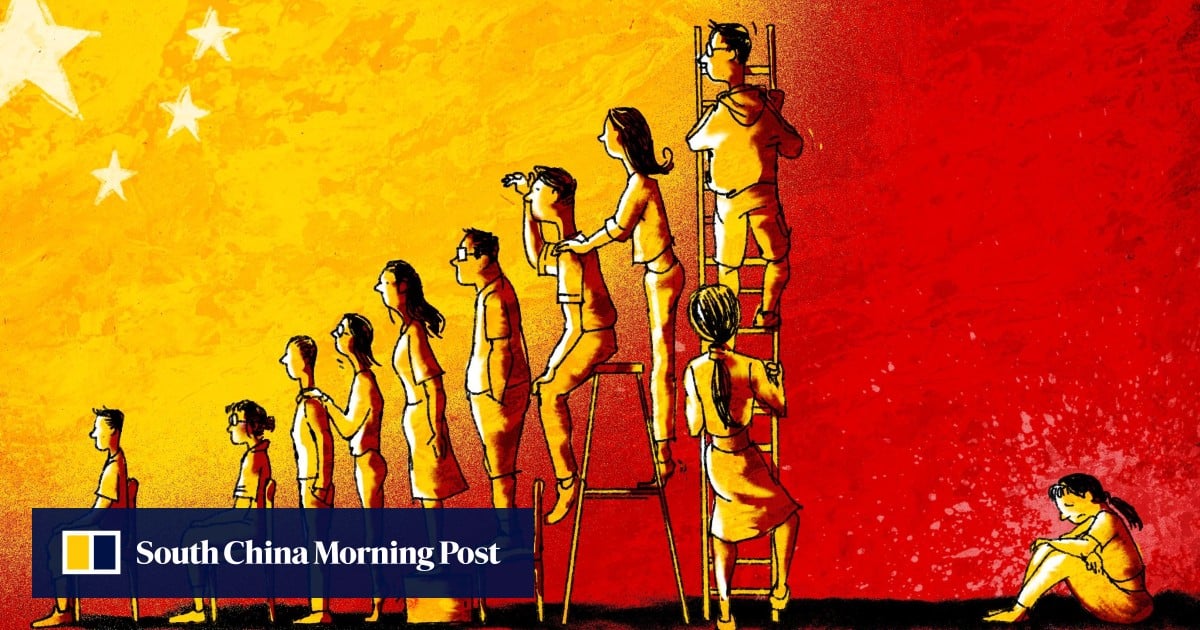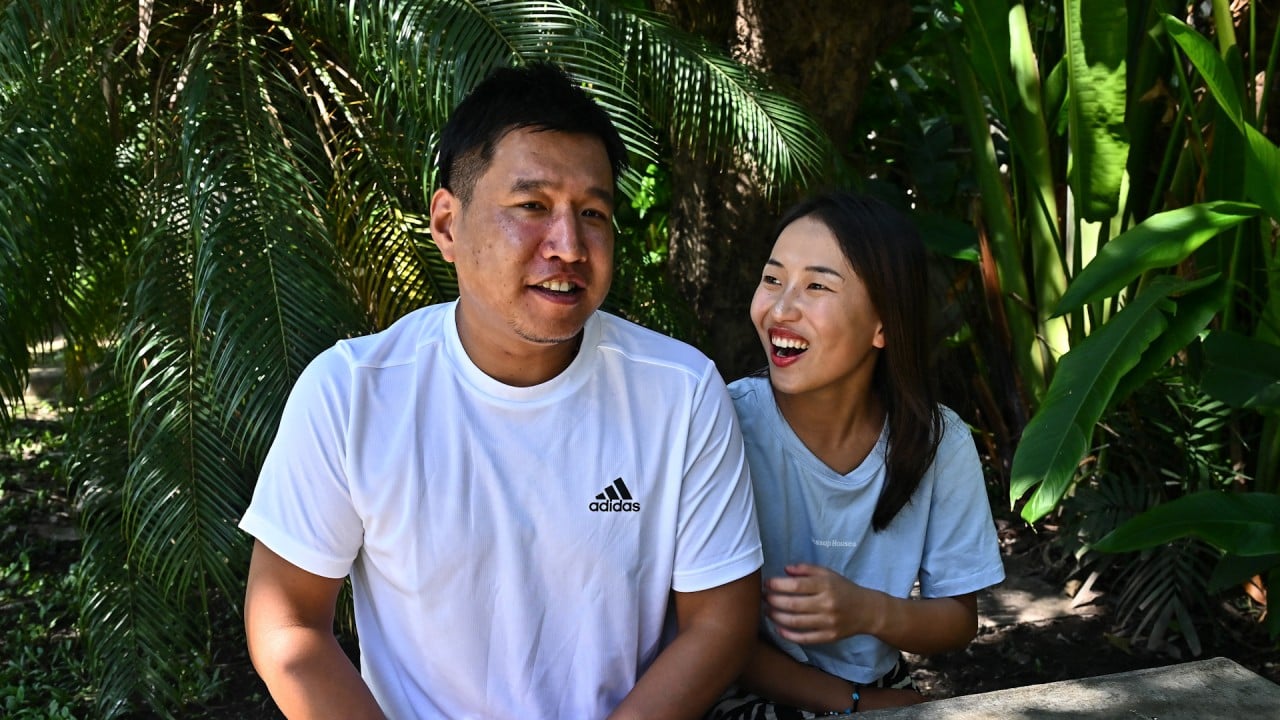Demographers and analysts say the mental health of young Chinese may affect the country’s future “human capital”, and more broadly its economic path, and that Beijing must take steps to treat the issue seriously.
No official data is available on the number of young people with mental health issues in China. Researchers at the Central South University in Hunan province estimate more than 9 million of 156 million Chinese adolescents aged between 10 and 19 have depression or anxiety, according to a report published on the US National Library of Medicine website last year.
It is in stark contrast to what President Xi Jinping seeks from the youth of China: be willing to take on responsibilities, work hard and work well. He has repeated these sentiments in several speeches over the past few years in a plea to push China to achieve “national rejuvenation”.
Free time worth more than money: China’s youth ‘lie flat’ as economy slows
Free time worth more than money: China’s youth ‘lie flat’ as economy slows
“It’s worrying if younger Chinese people are experiencing a malaise in terms of drive and motivation,” said George Magnus, a research associate at Oxford University’s China Centre.
“The reasons for such malaise are normally linked to a lack of opportunity and/or low confidence in their expectations – and that’s primarily about the economy in general, and occupational and social mobility in particular,” Magnus said.
If the underlying causes remain unaddressed, widespread depression augurs low fertility and hurts societal vitality and innovation, leaving China’s plight worse than the long economic stagnation experienced in Japan, according to Magnus and other analysts.
For Song, the depression comes from high academic pressure and dim job and life prospects.
“Cutthroat competitions never end,” she said with a sigh. “It’s difficult to find a job, and competition to become a civil servant or postgraduate is getting more intense. Even if you’re lucky enough to win out in these exams, you’ll feel helpless facing high home prices and the heavy burden of raising a child.”
Almost six months later, China resumed releasing the data. The youth jobless rate stood at 14.9 per cent in December, 14.6 per cent in January and rose to 15.3 per cent for February, according to the NBS. The country’s overall jobless rate was 5.3 per cent for February.
The number of Chinese graduates has been breaking records in the past few years. There were more than 10 million for the first time in 2022 and the figure reached 11.6 million last year. A record 11.7 million college students are set to graduate in the coming months.
When faced with difficulties in finding a job, many graduates choose to postpone employment or try their luck getting a position with the government, a job hunt that proves to be yet another rat race.
Last year, more than 3 million students took the civil service exam to compete for 39,600 vacancies at central government agencies and their directly affiliated institutions. This meant an average of about 77 candidates competing for a single position. Also, around 4.7 million students sat the postgraduate entrance exam last year for 760,000 vacancies nationwide.
As job prospects grow gloomier, parents are pushing their children harder to gain a competitive edge.
Chen Xugeng, 41, a Beijing resident and father to a 10-year-old boy, said he spent an annual 80,000 yuan (US$11,000) on his child’s extracurricular maths and English courses and fencing training.
“Like many Chinese parents, I hope my child can have a bright future and I believe in investment in education,” Chen said. “After all, education offers the rare fair chance for social mobility in China, especially for ordinary people with no power or political privileges.”
Chen, who was born in a remote village in the southwestern province of Sichuan, joined a security firm in Beijing after graduating from a prestigious university in the capital city.
“Education changed my life at a time when China’s economy grew rapidly. Now the economy is slowing, making education even more important because opportunities are fewer and are only for those who are well prepared,” he said.
To sharpen his child’s competitive edge, Chen paid for extracurricular courses for his son to “study earlier and deeper”.
“I feel sorry for my son that he has to study until 10pm every day. But we have no choice. Many children around us study even harder. Without the extra we’ll be left behind,” he said.
Chinese netizens borrowed the sociological term neijuan, or involution, to liken the competition in educational attainment to the audience at a cinema: someone stands up to get a clearer view, which obliges everyone behind them to stand. Then people climb on seats and ladders. But in the end, despite all their effort, no one is able to see the screen any better.
University student Wang Zhanxing said he once survived neijuan but was now reconsidering its cost. He achieved good results in the university entrance exam after one-on-one sessions with tutors for three hours every day for three years in high school.
He will graduate from a Beijing university this summer and says he has now decided to opt out of neijuan. When he sat the postgraduate entrance exam last year, his whole body trembled and in the end he quit the exam.
“I cannot do it any more. I’m fed up with tests, exams and even picking up a textbook. Enough is enough,” Wang said.
He has no immediate plans: “I will just muddle along for some time. Probably raise a cat.”
“Marriage? Maybe. Children? Never. Child-rearing would involve a lot of money and energy, and I don’t want my children to feel the pressure I did,” he said.
Chinese people are increasingly reluctant to have babies. The fertility rate – the number of children a woman can be expected to have in her lifetime – plunged from 2.6 births in the late 1980s to 1.19 last year, according to data from the United Nations. It is far below the replacement rate of 2.1 and is even lower than the 1.31 fertility rate of Japan, a country that has notably struggled for decades with low birth rates and a large ageing population.
Child-rearing costs are soaring. YuWa Population Research Institute, a think-tank in Beijing, calculated that the average cost of raising a first child to the age of 18 was 538,000 yuan last year. That is 6.3 times China’s GDP per person and is lower only than that in South Korea.
China’s fertility rate is expected to remain less than 1.5 throughout this century, according to Joseph Chamie, a demographer and former director of the United Nations’ Population Division.
“China will likely follow a pattern similar to other East Asian countries, such as Japan and Singapore, namely population decline and an ageing population,” Chamie said.
“China’s various attempts to raise the fertility rate back near the replacement level are unlikely to succeed, as the measures are too late and too limited.”
In 2021, it switched to a three-children policy and introduced incentives such as cash handouts, tax breaks and longer maternity leave. It has also launched a “double reduction” policy – placing strict limitations on the volume and difficulty of homework as well as the scope and scale of private or after-school tutoring – to reduce the financial burden on parents. But the measures have not made much difference.
Liang Jianzhang, demographer and a founder of YuWa Population Research Institute, said China should launch more forceful policies, including scrapping the zhongkao, a compulsory senior middle school entrance exam, and reducing the number of school years – as a way to make couples less reluctant to have children and ease the negative effects of an ageing population on innovation and economic growth.
Magnus said the parallels with Japan, South Korea and other Asian “tiger economies” were instructive.
“When these nations had China’s current income per head, they were able to look forward to years of rising educational and career mobility, a growing working age population and profound shifts in their economic structures that benefited households, private consumption and services, which in turn fuelled productive private investment,” he said.
“China is now at a crossroads at which the status quo is liable to lead China to distance itself from the path trodden by Japan and the [Asian] tigers,” he said.
China is getting old before it gets rich, economists and demographers have noted, as it battles a rapidly ageing labour force and stagnating economy.
Amid job market woes, China to add another 11.8 million graduates to workforce
Amid job market woes, China to add another 11.8 million graduates to workforce
“If young people are the future, it’s essential to invest in their human capital as much as, or more than, in physical capital. The problem in not doing so is glacial rather than cliff edge but it’s nevertheless a big one,” Magnus said.
Chen Daoyin, an independent political analyst said widespread pessimism about the next generation’s prospects would cost society vitality and momentum.
“At some point, when economic development is hindered so much that a financial crisis breaks out, a social eruption is likely to take place from the masses and elites who are left out from the party’s inner system,” Chen said.


